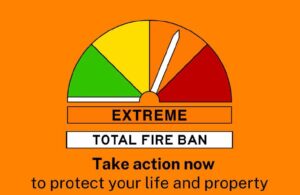
A significant report released by the Australian Institute of Health and Welfare (AIHW) has highlighted a troubling statistic: approximately nine potentially avoidable deaths occur each day among individuals with a history of specialist homelessness support. This analysis marks the first comprehensive examination of death rates and characteristics of people who have engaged with homelessness support services in Australia during the period from 2012-13 to 2022-23.
The report indicates that around 43,200 people with a history of receiving specialist homelessness services died over the past decade. The median age at which these individuals died was just 55 years, significantly lower than Australia’s average life expectancy of 83 years. Alarmingly, more than half of the deaths recorded in 2022-23 were classified as potentially avoidable, stemming from conditions that could have been prevented or treated with timely healthcare interventions.
The report details that these avoidable deaths represented about one in eight of all such fatalities nationwide. The leading causes of death among those with a history of homelessness support included accidental poisoning, overdose, coronary heart disease, and suicide. Over the span of a decade, more than 8,500 individuals with a history of specialist homelessness support died by suicide or overdose, averaging more than 16 deaths per week.
In response to these findings, Kate Colvin, CEO of Homelessness Australia, emphasized the urgent need for improved health services and housing support. “This is startling evidence of the deadly impact of homelessness, and the failure of governments to deliver the health services, homelessness support, and housing people need to escape homelessness and recover their health,” Colvin stated. “Vulnerable people are needlessly dying in our wealthy country.”
Tragic Statistics and Underlying Issues
The AIHW’s separate analysis revealed that accidental poisoning or overdose, along with suicide, emerged as the primary causes of death for individuals who received homelessness support in the last year of their lives. These two factors accounted for approximately a quarter to a third of all deaths annually. Among the 14,000 people who died from 2012–13 to 2022–23 and had received support in their final year, around 25% were aged between 45-54, and approximately 6.2% were children and young people under 25 years old. The demographic data revealed that the largest cohort of women who died (11%) were aged between 25-34, followed by females aged 15-24.
Colvin remarked on the gravity of the statistics, saying, “Every one of these deaths is a person with hopes and dreams in life whose life has been cut short. People are dying because they have suffered trauma, often including violence, and they can’t get the housing, homelessness support, or health support they need. People face further risks of violence and trauma while they are homeless, destroying their mental wellbeing.”
Research has consistently shown the detrimental effects of homelessness on mental health. Various reviews, including the 2023 NDIS Review and the 2020 Productivity Commission Inquiry into Mental Health, have underscored the harm caused by inadequate housing and support for individuals with mental illness and psychosocial disabilities. These reviews have called for a coordinated approach between health and housing systems.
Call for Urgent Change
Colvin highlighted the opportunity presented by the upcoming negotiations regarding foundational supports for individuals with psychosocial disabilities under the National Disability Insurance Scheme (NDIS). “The most critical change needed is the creation of housing integrated with mental health care and support so people can escape homelessness and recover their health and wellbeing. This housing combined with support is called ‘Housing First’ and is considered best practice worldwide to support people with psychosocial disability to escape homelessness.”
In many countries, Housing First programs are primarily funded as health interventions, focusing on the provision of stable housing along with necessary support services. Colvin urged leaders to take action in light of the report’s findings. “Nine preventable deaths per day should shake our leaders into action. We need governments to give the attention needed to stop nine preventable deaths a day as a result of homelessness,” she said.
The AIHW’s report serves as a stark reminder of the ongoing crisis faced by many individuals in Australia, highlighting the urgent need for comprehensive and effective strategies to address homelessness and its devastating consequences.







